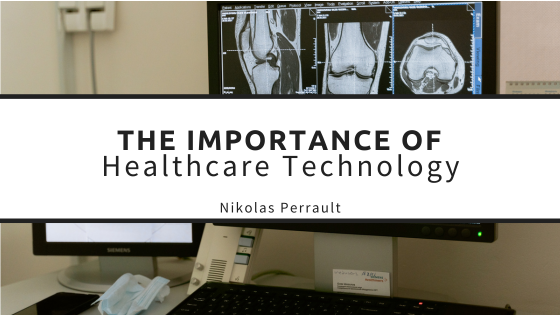The healthcare industry has witnessed remarkable advancements in recent years thanks to technology integration. From electronic health records (EHRs) to telemedicine, technology is pivotal in enhancing patient care, improving efficiency, and advancing medical research.
Improved Patient Care:
Healthcare technology has revolutionized patient care. Electronic health records (EHRs) enable healthcare providers to access patient information quickly and securely, leading to more accurate diagnoses and treatment plans. This streamlined access to medical histories and real-time data allows more informed decision-making. Healthcare technology enhances the quality of patient care by minimizing errors and facilitating communication among healthcare professionals.
Enhanced Efficiency:
Technology automates various administrative and clinical tasks, reducing paperwork and the risk of human errors. Appointment scheduling, billing, and insurance claims processing are streamlined by technology, freeing up more time for healthcare providers to focus on patient care. Healthcare technology improves efficiency by simplifying processes, leading to faster service delivery.
Telemedicine and Remote Monitoring:
Telemedicine has become increasingly important, especially in remote or underserved areas. It enables patients to consult with healthcare professionals through video calls, reducing the need for physical visits. Additionally, remote monitoring devices allow healthcare providers to track patients’ vital signs and chronic conditions from a distance. Telemedicine and remote monitoring have proven critical during the COVID-19 pandemic, ensuring continuity of care while minimizing the risk of virus transmission.
Data Analytics and Research:
The vast amount of healthcare data generated daily is a valuable resource for medical research and improving patient outcomes. Healthcare technology enables data collection, analysis, and predictive modeling. Using this data, researchers can identify trends, develop new treatment options, and enhance preventive measures. Technology empowers healthcare professionals to make evidence-based decisions and contributes to ongoing medical advancements.
Patient Engagement and Empowerment:
Healthcare apps and patient portals engage patients in their own care. Patients can access their medical records, schedule appointments, receive reminders, and monitor their health through mobile devices. This increased involvement promotes better health outcomes and encourages preventive measures. Patients are more empowered when they have access to their health information and can actively participate in their treatment plans.
Conclusion
The importance of healthcare technology cannot be overstated. It has transformed healthcare delivery, improving patient care, increasing efficiency, expanding access through telemedicine, advancing research through data analytics, and empowering patients to take charge of their health. As technology evolves, its role in healthcare will only become more prominent, shaping a healthier and more connected future for all.

